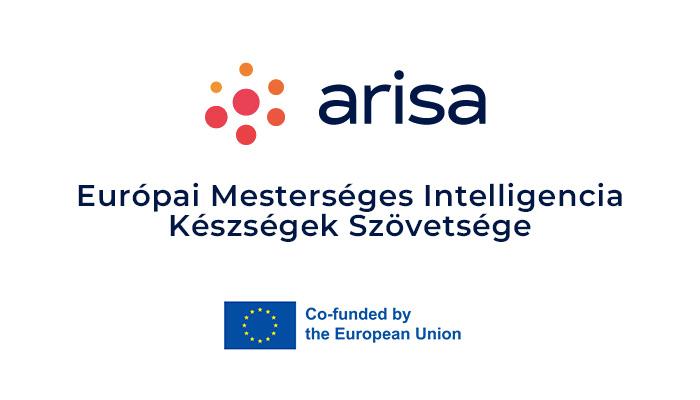What skills may workers in an AI-dominated time need?

The Artificial Intelligence Skills Alliance project, involving IVSZ, the ICT Association of Hungary, assessed the upskilling and reskilling needs of workers, managers, and decision-makers.
The Artificial Intelligence Skills Alliance project is based on a sound research foundation. According to the AI Skills Needs Analysis study, it is not enough to understand only software developers, AI strategies, AI ethics and AI quality assurance practices in companies, and all staff levels and roles - from project manager to finance manager - will have to acquire new types of skills, but senior managers cannot withdraw from further training. More than 400 companies from 12 countries, including 45 Hungarian ones, took part in the study, which hopes to provide the basis for the creation of a strategy on AI skills at EU level, to be compiled by consortium partners in the next phase of the ARISA project.
Building on the strategy, relevant training courses will be developed within the project and tested by the partners through pilots to make them available to a wide range of people in vocational education and training, thus helping to develop workers’ AI skills. In Hungary, the IVSZ and the Budapest University of Technology and Economics are involved in the ARISA project (Artificial Intelligence Skills Alliance; Artificial Intelligent Skills Alliance), and launch efforts together to accelerate the upskilling and upskilling of workers, job-seekers, business leaders and legislators in artificial intelligence (AI).
What AI professions are most in demand?
According to the results of the study, data engineers, machine learning engineers, and data scientists are currently the most sought-after technology jobs in the companies surveyed, but in the near future industry will need an increased number of NLP engineers (Natural Language Processing Engineer) and engineers specialised in machine vision (Computer/Machine Vision Engineers).
Research also assessed the range of AI skills most needed by organisations, and overall, the results showed that workers able to understand the business opportunities arising from the deployment of AI were highly demanded. The ability to recognise and exploit the potential benefits of AI technologies in an organisational context is considered to be of paramount importance for strategic decision-making and for enhancing competitive advantage.
Another key skill is the ability to collect high-quality data, as well as the ability to collect data without precise sources at one's disposal, correct data management and processing, AI algorithms and models cannot work effectively and prepare decisions for management. Companies also consider it essential to recruit or recruit workers with comprehensive knowledge in different fields of AI.
AI is not just for developers - some pieces everyone should know
It is also clear from the results of the survey that AI is no longer a concept that just software developers need to understand: too many roles nowadays work with it. Project managers, product managers and business managers within the organisation are the most in need of AI skills according to the responding firms. At the same time, in the near future, senior managers, auditors and financial managers will need to equip themselves with this knowledge and support functions such as AI strategies, AI ethics and AI quality providers – these jobs have not yet been heard. These responses indicate that companies are increasingly starting to recognise the critical role of decision-making positions in integrating AI strategies into financial operations, audit processes and decision-making at management level.
ARISA launches training courses to help people acquire much-needed skills
In response to the responses of the organisations interviewed, the survey authors identified AI skills gaps that require immediate action to be addressed – ARISA plans to launch targeted training programmes by the end of 2023 on the three themes where there is the most urgent need to raise skills levels:
- Basic AI skills for policy makers and decision-makers: in a few hours courses, decision-makers can learn the basic knowledge of AI.
- Basic advisory skills: a course of approximately one week’s duration specifically for policy makers, lobbyists and IT director advisors.
- Comprehensive prompt engineering course: a specific course for practitioners, such as software developers, machine-learning engineers, who will be able to expand their expertise on prompt engineering techniques at the course.
To develop skills in the above areas, new learning materials and pilot projects are being launched under the ARISA project.
“The research results clearly show how urgent it is to develop with regard to AI skills and that this is not only crucial for software developers. The Hungarian economy has a huge potential to exploit the potential of AI if we do not do so, we are lagging behind our competitors. This will require retraining programmes, targeted support for employers and workers to prepare today’s workers for the future. This is also important for the national economy: the economy is able to perform well and remain competitive in this AI era where workers use modern technology at skill level and are able to support the emergence of new innovative solutions based on AI", said Krisztina Tajthy, Secretary General of the IVSZ.





